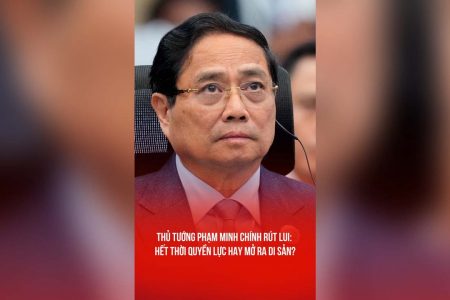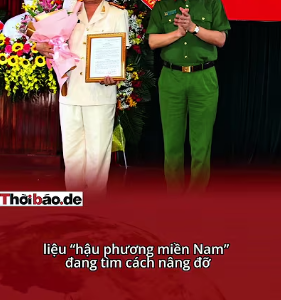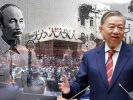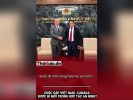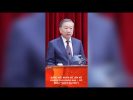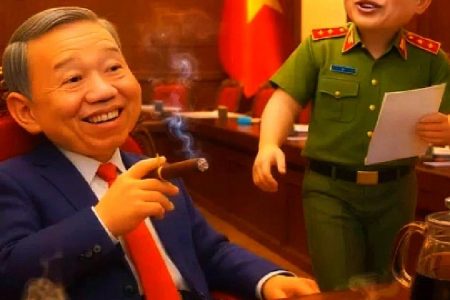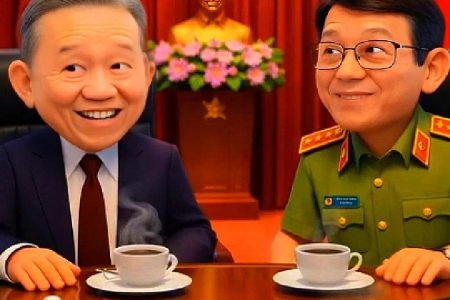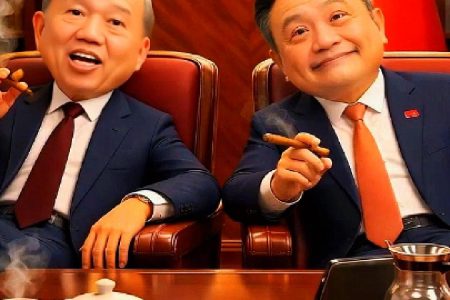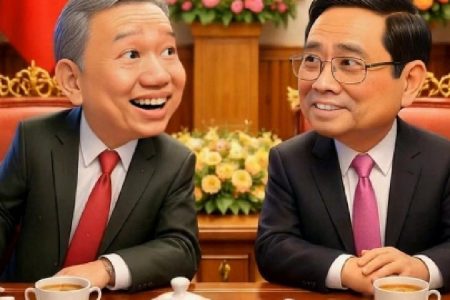
US Defense Secretary Lloyd Austin said that Washington did not want Hanoi to choose a side, but Chinese media immediately warned that Vietnam should continue the „4 No“ policy so as not to be „tricked“ by the US.
Vietnam is one of three countries selected by US Secretary of Defense Lloyd Austin to visit during his first trip to Southeast Asia. According to observers, this selection shows the importance of the region to the foreign policy of the Biden administration and the growing role of Vietnam in the US.
During the visit on July 28-29, Minister Austin, who was appointed to this position by President Biden in February this year, met with President Nguyen Xuan Phuc, Prime Minister Pham Minh Chinh and Minister of Defense Phan Van Giang.
At the headquarters of the Vietnamese Ministry of National Defense in Hanoi, the head of the Pentagon told his Vietnamese counterpart, General Giang, that the United States has a productive and warm relationship with Vietnam, according to the US Defense Department.
But “the United States does not require Vietnam to choose between partners,” Minister Austin told Minister Giang. “In fact, one of our central goals is to ensure that our allies and partners have the freedom and space to build their own future.”
Minister Austin’s visit to Hanoi is seen as seeking to forge deeper defense and security ties with Vietnam as both countries monitor China’s activities in the South China Sea in the face of increasing conflict alarm.
The Pentagon chief did not mention China, but Beijing is said to be making countries in Asia choose between China and the US as the two powers go head-to-head.
“There is concern that in specific situations, countries in the region may be required to choose sides between China and the United States,” said Nguyen Nam Duong, deputy director of the South China Sea Institute of the Vietnam Diplomatic Academy. “There are some smaller countries that might be very concerned about a big power confrontation.”
Speaking at the South China Sea Conference held online by the Center for Strategic and International Studies (CSIS) in Washington, US on July 30, Duong said that countries in the region „hope that Great powers should act in a responsible manner and refrain from confrontation so that peace and security in the region can be maintained.”
For years, the US has counterbalanced China in its national security policy, and the Biden administration views competition with Beijing as the „greatest geopolitical test“ of this century.
In a speech in Singapore on July 27 before arriving in Hanoi, the US defense secretary said that Beijing’s claims to much of the South China Sea have no basis in international law. Mr. Austin pointed to China’s aggressive behavior in the disputed waters and stressed the importance of keeping the area free and open.
However, according to Greg Polling, director of the CSIS Asia Maritime Transparency Initiative program, Minister Austin did not put the confrontation between Washington and Beijing at the heart of this speech, but rather instead reassured allies and partners that the Biden administration was aware that Southeast Asia was crucial to US strategy in the region.
Beijing warns
Immediately after the US Secretary of Defense finished his two-day visit to Vietnam, China’s state-run Global Times newspaper immediately issued an editorial warning that Washington „will be disappointed in forcing countries in Southeast Asia against China.”
According to the journal of the People’s Daily of the Communist Party of China, although the US Secretary of Defense did not mention China in his Twitter posts about his visit to Hanoi, „this does not mean that Mr. Austin doesn’t talk about China in meetings with Vietnamese leaders.“
Southeast Asian countries, especially Vietnam, have many maritime disputes with China over the South China Sea and, according to the Global Times, this is seen by Washington as a „good lever“ against Beijing.
In recent years, the US has repeatedly criticized China for bullying Vietnam and neighboring countries in oil and gas exploitation as well as sinking fishing boats of fishermen or continuing to militarize artificial islands in the South China Sea.
The Chinese newspaper commented that although the US said it did not want Vietnam and Southeast Asian countries to choose a side, „it asked them to choose to follow the US to jointly contain China.“ According to the Global Times, Vietnam welcomes Washington’s support but that „doesn’t make Vietnam choose a side.“
“(Vietnam) has a non-alliance policy,” said Duong, a former counselor of the Permanent Mission of Vietnam to the United Nations in New York. “Vietnam’s foreign policy has been fairly consistent over the past decades and it shows success. Then why should we change?”
The Global Times reported that the successive visits of Defense Minister Austin over the past week and Vice President Kamala Harris coming in August, despite showing growing US attention to Vietnam, but will not make Hanoi abandon its „4 No“ policy and will not be „tricked“ by Washington.
The „4 No“ policy introduced by Hanoi in the latest Vietnam Defense White Paper at the end of 2019, upgraded from the „3 No“ policy, includes no military alliances, no association with this country to against the other country, not allowing foreign countries to establish military bases, and not using force in international relations.
According to Vietnamese Ambassador to the US, Ha Kim Ngoc, the reality is that there is competition from major powers in the Indo-Pacific, but Vietnam’s foreign policy is to „have a good relationship with all regional powers.”
“Secretary of Defense Austin’s statement shows the US government’s understanding of (Vietnam)’s difficult situation,” Ambassador Ngoc said in response to VOA’s question about the US not asking Vietnam to choose what the party means to Hanoi, at a roundtable discussion hosted by the American Institute for Peace online on August 3, and said Vietnam chooses to cooperate with all major powers.
Minister Austin said in Singapore on July 27 that the US would not flinch when its interests were threatened but did not seek confrontation with China. Instead, the Pentagon chief said, he was committed to pursuing a constructive and stable relationship with Beijing.
Thoibao.de (Translated)
Source: https://www.voatiengviet.com/a/my-khong-muong-viet-nam-chon-ben-trung-quoc-van-lo-ngai/5990243.html



